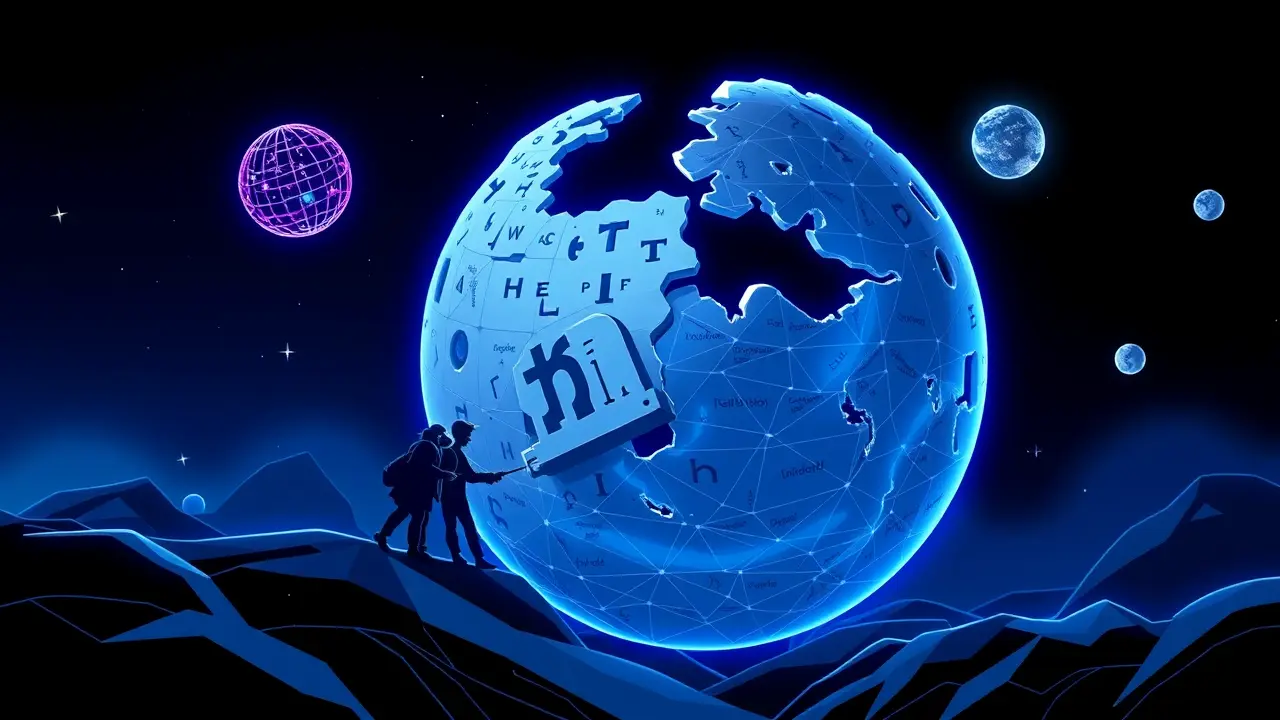Wikipedia Traffic Falls Due to AI Search and Social Video
The recent news that Wikipedia's traffic is falling, seemingly a casualty of the dual-pronged assault from AI search engines and the endless scroll of social video, feels like one of those quiet, tectonic shifts in the digital landscape that we'll look back on as a true turning point. It’s a story that goes far beyond simple web metrics; it’s about how we, as a global society, are fundamentally changing the way we seek and value knowledge.I found myself diving down a Wikipedia rabbit hole the other day, as I often do, clicking from the page on the War of the Spanish Succession to a biography of the Duke of Marlborough, and it struck me how uniquely serendipitous that journey is—a self-directed, link-based exploration that feels more like wandering through a vast, interconnected library of human understanding than executing a targeted query. This organic discovery is precisely what is being engineered out of the modern information diet.The rise of generative AI search, epitomized by tools like Google's Search Generative Experience and Perplexity AI, offers a seductive alternative: instead of presenting you with a list of ten blue links, it synthesizes information from across the web, including Wikipedia, and delivers a single, neat, packaged answer right at the top of the page. It’s efficient, undoubtedly, but it’s also profoundly passive.You get the summary without the context, the conclusion without the footnotes, the answer without the journey that teaches you how the answer was constructed and what the competing viewpoints might be. It’s the difference between being handed a perfectly crafted, pre-packaged meal and learning to cook by wandering through a market, smelling the spices, and talking to the vendors.One saves time; the other builds a deeper, more intuitive understanding. Similarly, the gravitational pull of social video platforms like TikTok and YouTube, especially for younger demographics, prioritizes a different kind of information consumption—one that is algorithmically curated, emotionally resonant, and visually stimulating, but often ephemeral and depth-averse.A 60-second video explaining the causes of World War I can be engaging, but it cannot hope to capture the nuanced complexity laid out in Wikipedia’s meticulously sourced and collaboratively edited article, complete with its detailed order of battle, political timelines, and analysis of long-term consequences. The underlying business models create this chasm: Wikipedia, sustained by donations and a non-profit ethos, aims to be a permanent, reliable record.Social media and AI are driven by engagement and advertising, optimizing for attention and immediacy above all else. This trend poses an existential question for the Wikimedia Foundation, the non-profit that operates the encyclopedia.Their entire model is predicated on being the central, neutral ground for verifiable information on the internet. If that ground is increasingly bypassed, what happens to their relevance and, crucially, their funding? Fewer readers could mean fewer donors, potentially starving the very project that these AI models are so effectively parasitizing.It’s a cruel irony that these large language models were trained on vast corpora of human knowledge, much of it sourced from Wikipedia’s open-access pages, and are now potentially contributing to the decline of that same foundational resource. There's a historical parallel here, albeit an imperfect one, in the way the rise of broadcast television in the mid-20th century reshaped public discourse away from the detailed, text-based arguments of newspapers and toward soundbites and visual narratives.We are witnessing a similar, but accelerated, transition from a web of documents to a web of answers and experiences. The potential consequences are vast.A populace that relies on AI-summarized information may become more informed on surface-level facts but less equipped to understand the methodology of knowledge creation, the importance of source criticism, and the value of seeing multiple sides of a complex issue. The very idea of a canonical, community-vetted source of truth could erode, replaced by personalized, opaque AI interpretations.This isn't to say that AI and video are inherently bad; they are powerful tools for accessibility and engagement. The challenge, and the opportunity, is to find a new symbiosis.Perhaps Wikipedia's future lies not just in being a destination, but in becoming an even more robust infrastructure layer for the internet—a trusted data source that powers AI tools directly, ensuring accuracy is baked in, or a platform that develops its own AI-native interfaces that encourage exploration rather than replacing it. The falling traffic numbers are a canary in the coal mine, a signal that the digital commons is changing in profound ways.It’s a reminder that the systems we build to access information ultimately shape the kind of knowledge we value and the kind of thinkers we become. The quiet hum of a Wikipedia page loading, with its promise of a deep, self-directed dive, might one day be a nostalgic sound, replaced by the instant, silent certainty of an AI-generated box. The question is, in gaining that efficiency, what richness of understanding are we trading away?.
It’s quiet here...Start the conversation by leaving the first comment.
© 2025 Outpoll Service LTD. All rights reserved.
